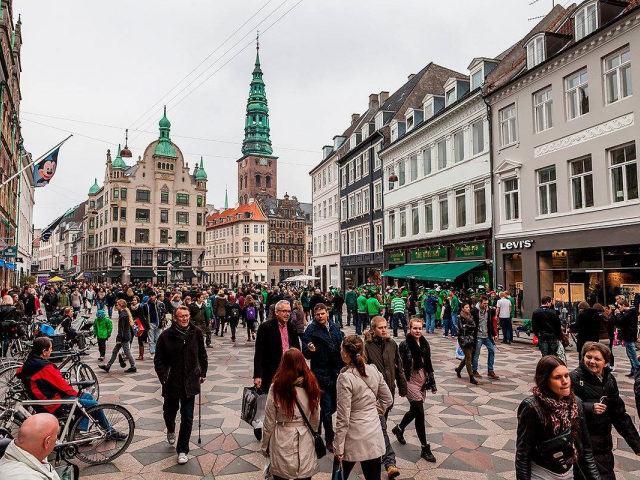
Top 7 winter drinks from around the world
Winter is the perfect time to curl up in a warm blanket and enjoy drinks that bring coziness and holiday cheer. Here are seven winter drinks that are perfect for cold days




Belgium
In 2022, Belgium adopted an innovative approach to the organization of working hours. It became the first country in the European Union that officially offered the possibility of transitioning to a four-day working week, with the total number of working hours remaining at 40. In this way, the productivity of Belgians did not decrease because their work schedule became more intensive. However, they got an extra day off for their personal affairs.

Netherlands
The Netherlands has long been known for its commitment to work-life balance. Today, it leads the world in the smallest number of working hours per week. According to official data, the average working week in this country is just 29 hours. Although the Netherlands does not have an official four-day working week, many companies have introduced it, underscoring the nationwide desire to improve quality of life by reducing working hours.

Denmark
Denmark currently ranks second in the world in terms of the smallest number of working hours per week. The average working week in this country is 33 hours. Notably, in Denmark, a four-day working week is not officially allowed. However, many Danes have long followed this schedule. If they work five days a week, they have a chance to leave their workplace at 16:00 every day to spend time with their families, pick up their children from school or kindergarten, and do household chores.

Australia
Australia is also actively implementing an innovative approach to working time management. Today, twenty local companies are experimenting with a four-day working week as part of a pilot program. Australian employers require their employees to work 38 hours per week. A new model known as "100:80:100" suggests that employees will receive full pay (100%) if they reduce their working hours to 80% of standard hours and maintain 100% productivity.

Japan
Japan, known for its devotion to work, is now also making moves to change this tradition. Since 2021, the government has started rewarding companies that initiate the transition to a four-day working week. The main purpose of this initiative is to combat "karoshi", which can be translated literally as "overwork death." In this way, the authorities seek to reduce stress caused by exhausting work. It is also believed that this measure will help to increase the birth rate in the country, which is especially important for Japan with its aging population.

United Kingdom
In 2022, the UK joined a number of countries exploring the possibilities and benefits of a four-day working week. More than 60 companies and a total of 300 employees participated in the experiment. The results of the experiment surprised the government, as its main outcome was a 65% reduction in sick days. This once again emphasized the positive effects of a shorter working week on the health and well-being of employees.

Portugal
In Portugal, the four-day working week experiment started in June 2023. It involved fewer working hours without reducing wages. It was conducted without financial support from the state. Nevertheless, 46 companies volunteered to participate in the project. At the end of the first stage of the experiment, a promising result was obtained. Thus, with the introduction of a four-day working week, employees' anxiety levels and sleep problems decreased by 20%. That is why it was decided to continue the experiment.

Winter is the perfect time to curl up in a warm blanket and enjoy drinks that bring coziness and holiday cheer. Here are seven winter drinks that are perfect for cold days

Despite the widespread belief that ultra-wealthy individuals are leaving big cities in search of privacy, most still prefer to live in bustling metropolises, according to the latest billionaire census conducted by Altrata. Let's explore which cities today have the largest concentration of people with a fortune exceeding $1 billion

The European Union currently includes 27 member states, but the interest in joining continues to grow, with an increasing number of countries aspiring to become part of the bloc. This article highlights the countries advancing toward European integration and examines where they stand on this path